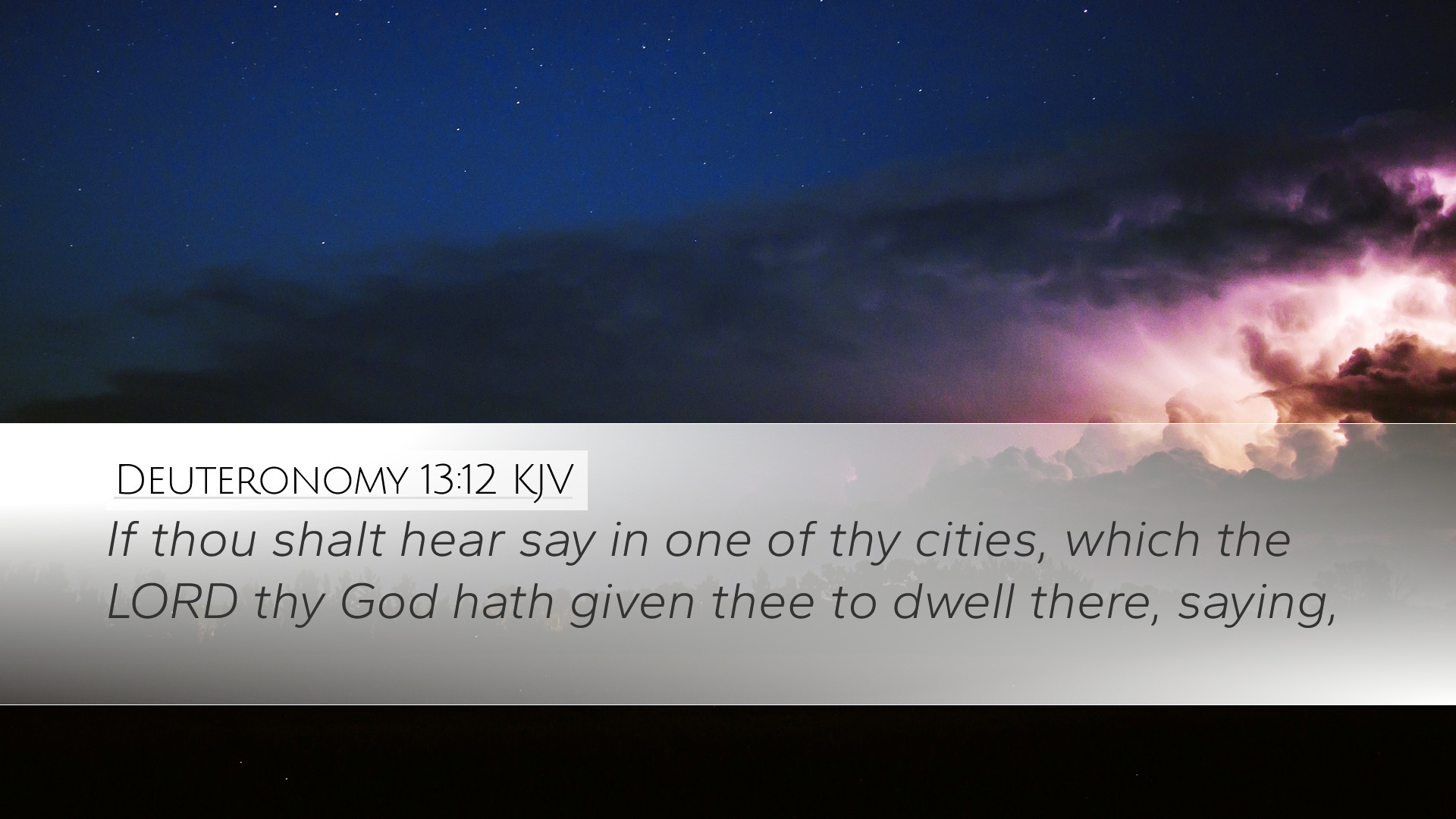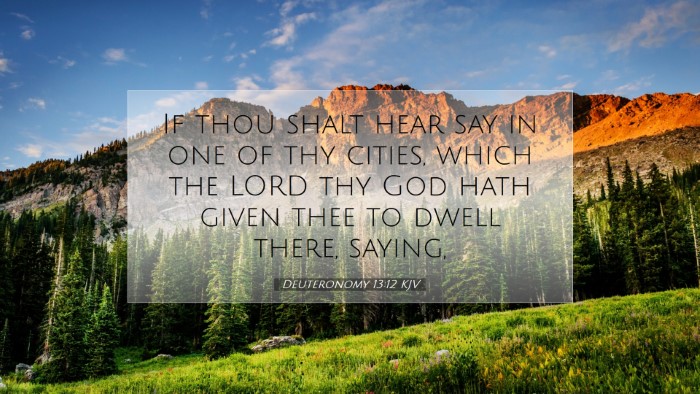Commentary on Deuteronomy 13:12
Bible Verse: "If you hear it said concerning one of the cities which the LORD your God gives you to occupy, saying, ‘Some worthless fellows have gone out from among you and have drawn away the inhabitants of their city, saying, ‘Let us go and serve other gods’…"
Introduction
Deuteronomy 13:12 addresses a critical issue within the community of Israel: the danger of idolatry and the consequences of leading others away from the worship of the true God. This scripture serves as a warning and a guide on how to respond to the threat of false teachings and practices that can infiltrate the covenant community.
Contextual Analysis
This verse occurs within a broader section of Deuteronomy where Moses outlines the consequences of infidelity to the Lord. The Israelites are warned against various forms of apostasy, particularly concerning the worship of foreign gods. The priority of maintaining the purity of worship is evident throughout this chapter.
Moral Responsibility
Matthew Henry emphasizes the moral obligation of the Israelites to maintain faithfulness to God’s commandments. This passage implies a communal responsibility—not just an individual one. It suggests that each member of the community must be vigilant against influences that lead them away from their allegiance to God.
Divine Judgment
Albert Barnes notes that the instruction in this verse reveals the seriousness with which God views the worship of other gods. The language used is strong, underscoring that even the suggestion to turn away is met with condemnation. It illustrates the gravity of sin and the undivided loyalty expected from God’s people.
False Prophets and Their Impact
This excerpt challenges the readers to consider the potency of deceitful influences: “worthless fellows.” The designation indicates individuals who disregard the true faith and seek to introduce heretical beliefs among the people.
- Influence on the Community: A single voice can sway entire communities, emphasizing the need for discernment.
- Role of Leaders: Leaders and teachers must be held accountable to God's guidance, as they have a more significant influence on the faith of others.
Response to Apostasy
The narrative continues to outline the measures against those who promote idolatry. Adam Clarke suggests that swift and decisive action is required when confronting falsehood. The principle of acting promptly serves to preserve the faith and integrity of the community.
Steps to Take
- Recognize the Threat: Identify the false teachings without ambiguity.
- Educate the Community: Provide thorough teaching on the true nature of God and His law.
- Hold Accountable: Ensure accountability among believers to foster a culture of truth.
Theological Implications
This verse raises profound theological implications about the nature of God’s covenant with His people. God's expectations require total devotion, and any deviation is treated with utmost seriousness.
- God’s Holiness: The intensity of the consequences emphasizes how God's holiness demands purity among His followers.
- Community Over Individualism: The focus on cities and communities illustrates the corporate aspect of faith—faithfulness impacts not only oneself but also the collective.
Practical Application
In the contemporary church, the lessons drawn from Deuteronomy 13:12 still resonate. The challenge of false teachings is ever-present; hence, vigilance is required from both leaders and congregants.
- Vigilance Against Cultural Idolatry: Recognizing modern equivalents of idolatry—such as materialism, secularism, and ethics that contradict biblical teachings—requires discernment.
- Encouraging Accountability: Collectively holding one another accountable is crucial in maintaining doctrinal purity.
Conclusion
Deuteronomy 13:12 serves as both a warning and a call to action for the community of faith. Through the insights of public domain commentaries, we are reminded of the importance of vigilance, the necessity of accountability, and the profound implications of our collective worship practices. As we navigate the complexities of faith in a pluralistic society, this verse shall guide our commitment to the one true God.


